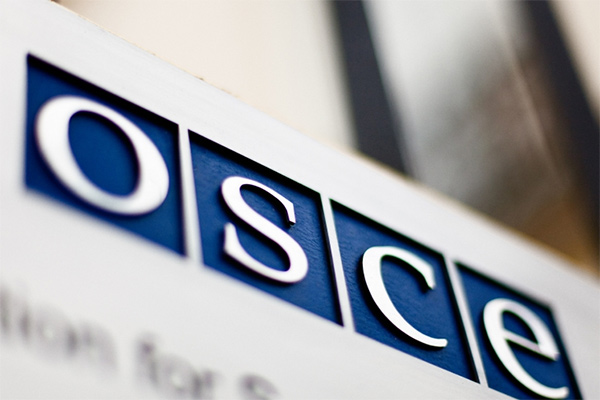
Central Asian Countries Strengthen Regional Cooperation on Electronic Evidence
Central Asian Countries Strengthen Regional Cooperation on Electronic Evidence
Tashkent, Uzbekistan (UzDaily.com) — On 12–13 November, Tashkent hosted the Central Asian Regional Seminar on Cross-Border Requests for Electronic Evidence, organized by the OSCE Transnational Threats Department in cooperation with the OSCE Project Co-ordinator in Uzbekistan. The event brought together participants from Kazakhstan, Kyrgyzstan, Tajikistan, Turkmenistan, and Uzbekistan.
The two-day seminar focused on improving cross-border access to electronic evidence in the investigation of online crimes, including terrorist activities, while ensuring full respect for human rights. Experts from the United Nations, the European Union, the Ludwig Boltzmann Institute, and several online service providers joined representatives of national judicial, prosecutorial, and law enforcement authorities in the discussions.
Nico Schermers, Ambassador of the Kingdom of the Netherlands to Central Asia, underlined the importance of regional dialogue and cooperation among governments, practitioners, and the private sector.
“Close cooperation has delivered tangible results in legislative development and institutional strengthening. Central Asia is demonstrating impressive commitment to addressing the complex challenges of cross-border access to electronic evidence, moving from analysis to action,” he said.
Participants reviewed national progress since the 2024–2025 needs assessment missions conducted by the OSCE, discussed the development of standard operating procedures for cross-border requests, the alignment of national legislation with international conventions, and the strengthening of interagency and international cooperation.
Opening the event, Clemens Schwanhold, Deputy Head of Mission at the German Embassy in Uzbekistan, stated: “Germany strongly believes that effective investigative powers must go hand in hand with robust safeguards for privacy, personal data protection, and guarantees of fair trial. We welcome the region’s efforts to harmonize national legislation with international standards, particularly the Budapest and Universal Conventions on Cybercrime.”
The discussions also touched upon the recently signed UN Cybercrime Convention between Uzbekistan and Kazakhstan and Uzbekistan’s plans to join the Budapest Convention. “We are proud that Uzbekistan is initiating the process of accession to the Budapest Convention. We express our gratitude to the OSCE for its continuous support and assistance throughout this process,” said Gayrat Musaev, Associate Professor of Law and representative of the Administration of the President of Uzbekistan.
International experts, including representatives of the Dutch National Police and the US Federal Bureau of Investigation, shared practical examples of cross-border cooperation. Service providers presented best practices for working with law enforcement while ensuring respect for human rights.
Feizo Numanaj, Head of the Anti-Terrorism Unit of the OSCE Transnational Threats Department, emphasized the central role of human rights in the digital environment: “Every law and procedure governing cross-border access to electronic evidence must ensure due process, judicial oversight, and the protection of privacy. Without these fundamental principles, initiatives to improve access to electronic evidence risk undermining justice, eroding public trust, and hampering international cooperation.”
The seminar marked another step toward developing a unified regional approach to handling electronic evidence.
It was held as part of the OSCE E-VIDENCE project, which aims to strengthen legal frameworks, operational capacities, and cooperation with service providers for investigating online crimes in line with human rights standards, with support from Germany and the Netherlands.